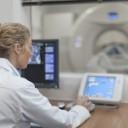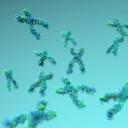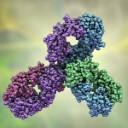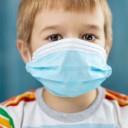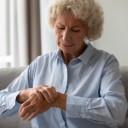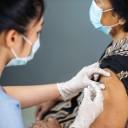-
A Closer Look at Sarcopenia
Gastrointestinal oncologist and health services researcher Ryan Nipp discusses new research about how muscle quality correlates with cancer outcomes.
by Ashley P. Taylor
-
Genetic Testing Gaps
Testing for hereditary mutations is increasingly recommended for people with cancer, but recommendations do not always translate into access to testing and appropriate counseling.
by Kate Yandell
-
Rethinking Access to Disability Benefits
Advances in screening and treatment mean there are more cancer survivors than ever, but survivors who struggle to work can face difficulty getting disability payments.
by Jen Tota McGivney
-
Expanding Immunotherapy
At a patient advocate event, researchers discussed how to extend the benefits of immunotherapy to more people.
by Kevin McLaughlin
-
Should All Kids With Cancer Get Genetic Testing?
Testing children with cancer for hereditary mutations could impact their treatment and provide information relevant to other family members.
by Marcus A. Banks
-
Understanding How Radiation Causes Cancer
Researchers are investigating who is at greatest risk for radiation-induced cancers.
by Kate Yandell
-
How Long Do Immunotherapy Side Effects Last?
For people with melanoma who receive immune checkpoint inhibitors after surgery, side effects can remain even after treatment has been completed. These chronic side effects are most often mild.
by Anna Goshua
-
Making Connections at the AACR Annual Meeting 2021
Attending a scientific conference as a patient advocate can be an exhausting, overwhelming and hugely rewarding experience.
by Bradley Jones
-
Building COVID-19 Vaccine Confidence
Experts discussed how the cancer community can share accurate information and increase confidence in COVID-19 vaccines, both among people with cancer and the general population.
by Kevin McLaughlin
-
Chemobrain: It’s Not Your Imagination
Scientists discussed the mechanisms of chemotherapy-related cognitive impairment at a session dedicated to symptom science at the AACR Annual Meeting 2021.
by Marci A. Landsmann
Cancer Talk
Physical Activity Linked to Lower Colon Cancer Recurrence
Participating in a structured exercise program after treatment was associated with a reduced risk of recurrence in people who had colon cancer.
by Sandra Gordon
Gaps in Survivorship Care Leave Unmet Needs After Cancer TreatmentA survey of head and neck cancer survivors reveals that many are not getting adequate survivorship care and may not even know it is available.
by Cameron Walker
Improving Communication for Deaf Cancer PatientsAfter a cancer diagnosis, people who are deaf or have hearing problems can struggle if accommodations don’t meet their communication needs.
by Eric Fitzsimmons
Is Immunotherapy Right for People Hospitalized With Advanced Cancer?Researchers find no evidence that immune checkpoint inhibitors benefit cancer patients getting inpatient care. They urge earlier consideration of palliative care.
by Kyle Bagenstose

